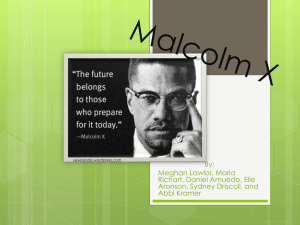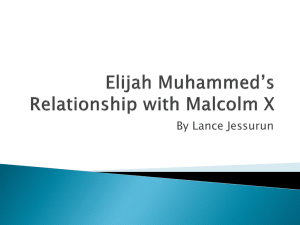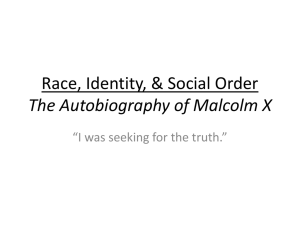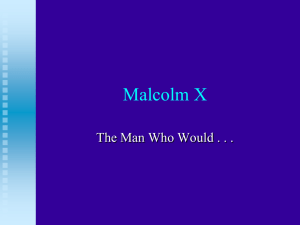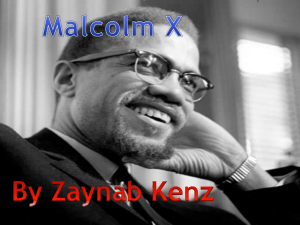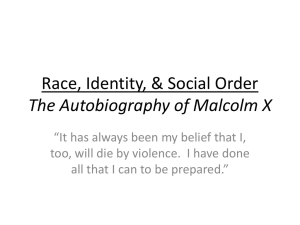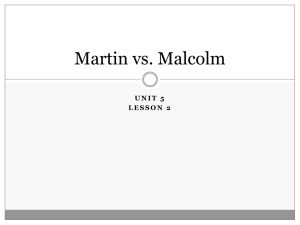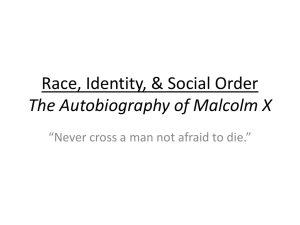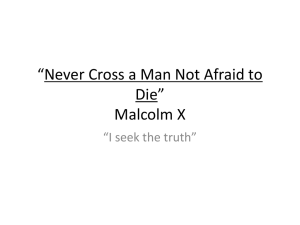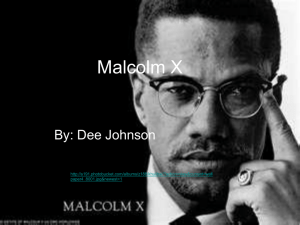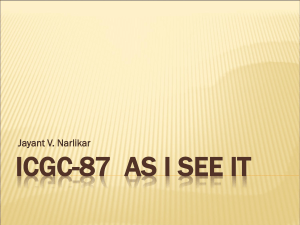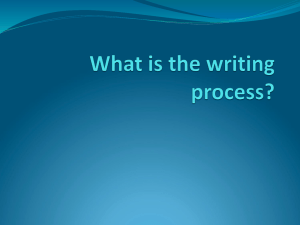American Literature B- Unit Five Short Story *The Story of an hour*
advertisement
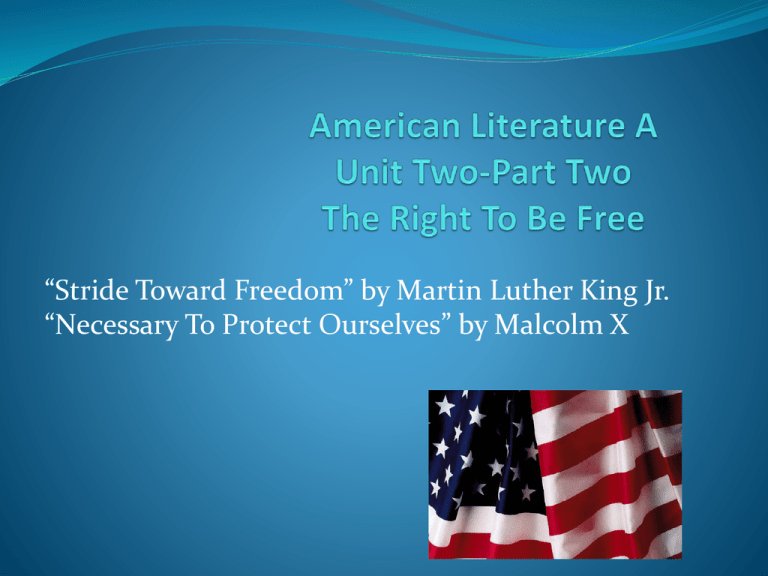
“Stride Toward Freedom” by Martin Luther King Jr. “Necessary To Protect Ourselves” by Malcolm X Questions-Pg. 304 1. Which two methods of responding to oppression does King oppose, and which does he support? King opposes violence and acquiescence (agreement or consent by silence or without objection; compliance). Problems with acquiescence. It makes people part of an evil system. It suggests oppression is moral. It can’t win respect. He supports nonviolent resistance. Violence does not solve problems in the long run; its immoral; it leads to destruction, not understanding Questions-Pg. 304 3. Of the reasons King favors the third response to oppression, which reason do you find the most persuasive, and why? That nonviolent resistance is noble and attracts people to a cause is persuasive. An important part of waging a successful campaign is winning support. Questions Pg. 307 “Necessary to Protect Ourselves” by Malcolm X 1. What is your response to the ideas Malcolm X expresses in this interview? May agree that people who are oppressed in a society should stop at nothing to fight for their civil rights, while others may feel that violence is an inappropriate response to any situation. Comprehension Check According to Malcolm X, when is violence justifiable? Violence is justifiable when citizens must protect themselves from injustice because the government has failed to do so. In explaining what to expect from African Americans, to what historical event does Malcolm X refer? Malcolm X refers to the American Revolution Questions Pg. 307 2. What are the main positions Malcolm X takes in this interview, and what are his supporting reasons? Malcolm X takes the position that people must protect themselves when their government fails to do so. He argues that it is only fair and understandable that African Americans try to protect themselves and stand up for their rights as other groups of people have done. He states that in the long run, this is the only way that African Americans will earn respect as equal human beings. Questions Pg. 307 3. Malcolm X compares the oppression of African Americans with that of American colonists under King George III. He believes that “it is only fair to expect” African Americans to react to tyranny as the revolutionaries did. Do you agree? Agree: The two situations are comparable and that violence is a justifiable means to an end. Disagree: Many African Americans followed Dr. King’s leadership, refusing to resort to violence. Questions Pg. 307 4. Based on these two selections, which leader do you regard as more persuasive-King or Malcolm X? King-more persuasive because of his highly moral stance and his carefully reasoned arguments. Malcolm X-more persuasive because of his practicality and his call for self-respect. 5. Which leader do you think is more revolutionary- King or Malcolm X? Questions Pg. 307 6. In your view, are the similarities between King and Malcolm X more important, or are the differences? Explain. Although King and Malcolm X have different views about how to achieve civil rights, their beliefs that society must change and that African Americans must be relentless in their pursuit of equality are similar. Or, that King’s and Malcolm X’s views about the use of violence set them apart. Questions Pg. 307 7. Both King and Malcolm X fought for justice for African Americans in the 1950’s and 1960’s. Name political, religious, or social causes that people are fighting for in the United States today. What are the most effective methods used to promote these causes? 8. Based on “Speech in the Virginia Convention,” what do you imagine Patrick Henry might have said about King’s advocacy of nonviolent resistance? Patrick Henry would have rejected nonviolent resistance as ineffective when the oppressor is armed and ready to use force.
